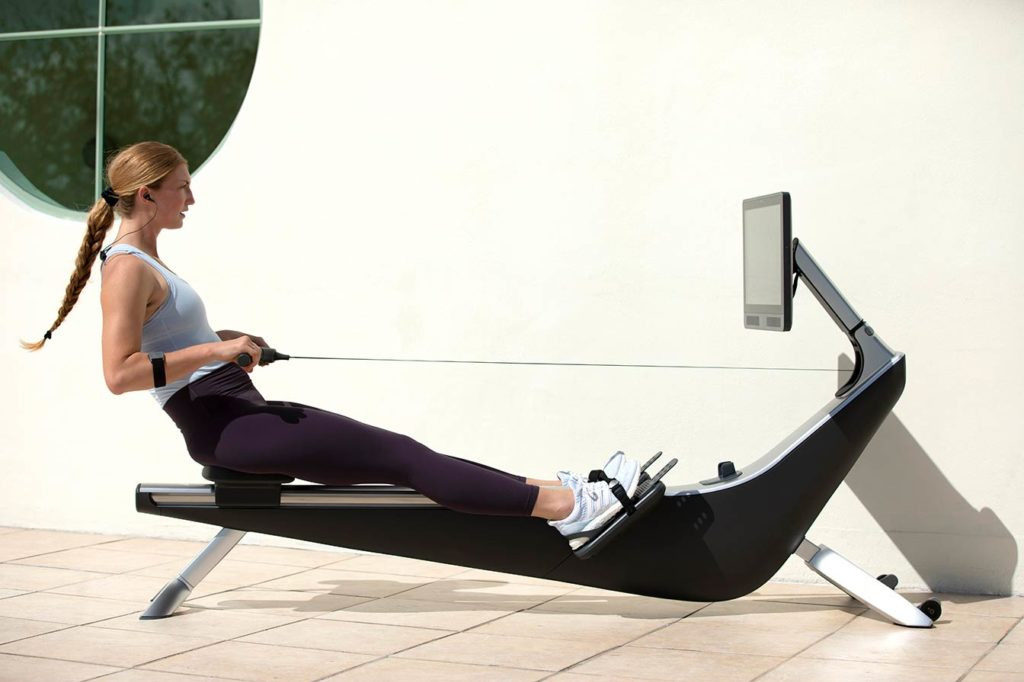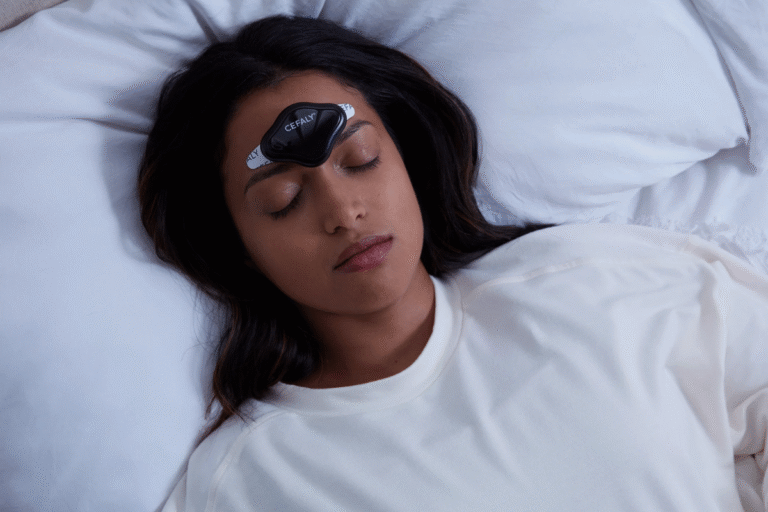Rising, falling, and recalibrating, the connected fitness industry has had a wild three years. Born with a bike, hardware and software bundles have emerged for just about every exercise style, from boxing to Pilates to strength training.
Keeping tabs on the ever-growing connected fitness category, we’ve compiled a list of equipment makers vying for a spot in your home gym.
How We Got Here
Over the last decade, gym memberships reached all-time highs as the wellness economy eclipsed $4T.
The golden era of group fitness, between 2013 and 2017, boutique studio membership boomed 121%. Around the same time, Peloton peddled fitness at home, followed by a host of high-tech equipment makers.
Nothing new, home workouts have been around since the days of Richard Simmons and Jane Fonda VHS tapes. This time, though, technology promised to change the game.
Flash-forward to 2020, the global pandemic kicked off the workout-from-home gold rush.
Reeling from COVID restrictions, by 2022 nearly 25% of all fitness facilities closed permanently. Pivoting to survive, brick-and-mortar operators scaled up their DTC efforts.
Believing that fitness had fundamentally changed, upstarts flocked to the space while investors lined up to fund the Peloton of ‘X’.
But now, as gyms reopen and demand slows, connected fitness is correcting course.
What to Watch For
Brick-and-mortar gyms are touting gains as at-home fitness brands stumble.
Last year, Xponential Fitness, F45 Training, and Life Time all IPO’d. More recently, these in-person fitness brands posted promising results when reporting quarterly and annual earnings.
On the flip side, Peloton, iFIT, and Beachbody have been forced to restructure amid waning sales.
Despite headwinds, a few strategies are gaining traction.
Fitness 3.0. Gaming-inspired options are moving the industry beyond competition-based or instructor-led options alone.
Open ecosystems. Forging vertical integration, as the sector evolves, the future of connected fitness could look less like Apple and more like Android.
AI trainers. Smart equipment makers are tapping computer vision and artificial intelligence to count reps, monitor movement, and correct form in real time.
Omnichannel. It’s becoming increasingly clear that consumers prefer a combination of digital and IRL exercise — giving rise to all new fitness bundles.
As the landscape continues to evolve, here’s a look at who’s who…
Multi-Product
Echelon
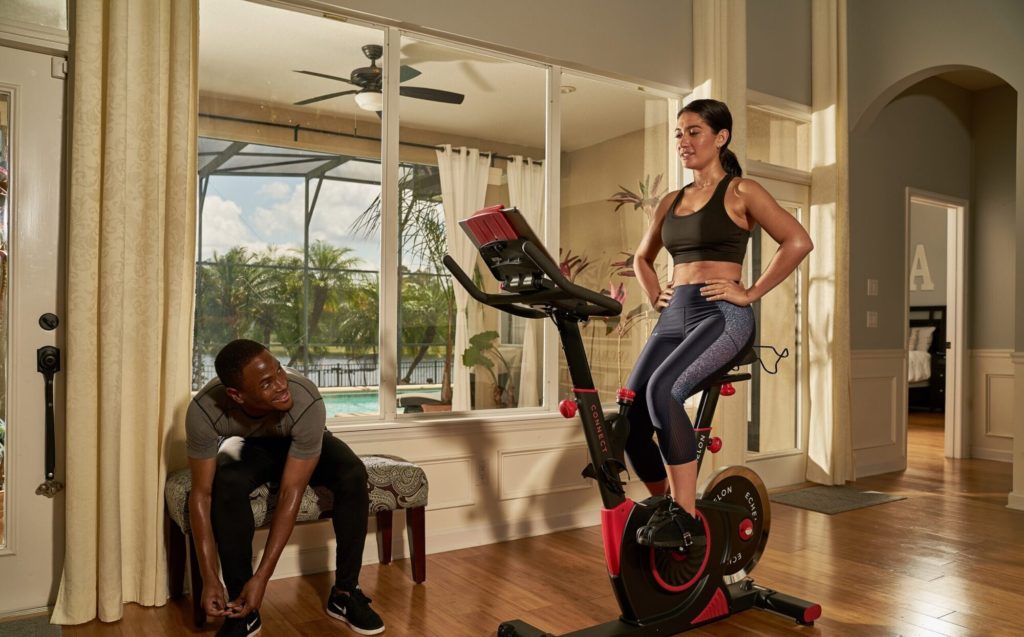
An emergent rival to Peloton, Echelon entered the connected fitness equipment market in 2018 with a smart bike and streaming platform. Not strictly DTC, Echelon has improved access by selling in select retailers like DICK’S Sporting Goods, Walmart, and Costco, as well as Amazon. Iterating its success, the company has invested in technology, launching a fitness mirror, rower, and smart treadmill.
More from Fitt Insider: Fitt Insider Podcast: Lou Lentine, CEO of Echelon Fitness
iFIT
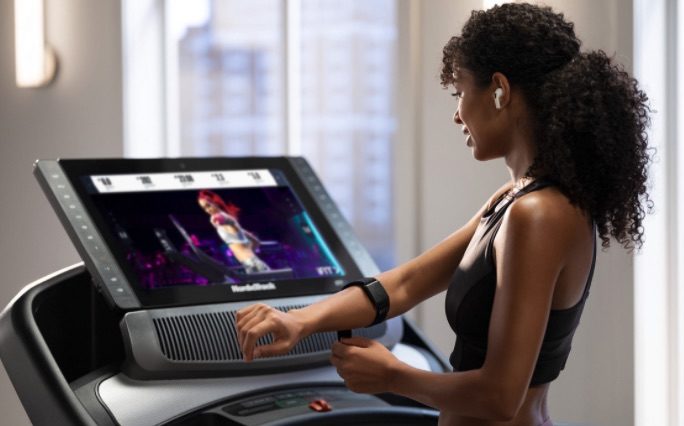
Formerly known as ICON Health & Fitness, iFIT has been in operation since 1977, primarily as an equipment manufacturer. Owner of brands NordicTrack, ProForm, Weider, and Freemotion Fitness, the company has delved into the digital sphere with its namesake interactive fitness platform, as well as the acquisition of workout app SWEAT. Claiming over five million members in 120 countries, iFIT had been cruising toward IPO before a series of stumbles wiped that off the table.
More from Fitt Insider: iFIT Adds $355M in Funding Amid Layoffs, Leadership Shakeup
Nautilus
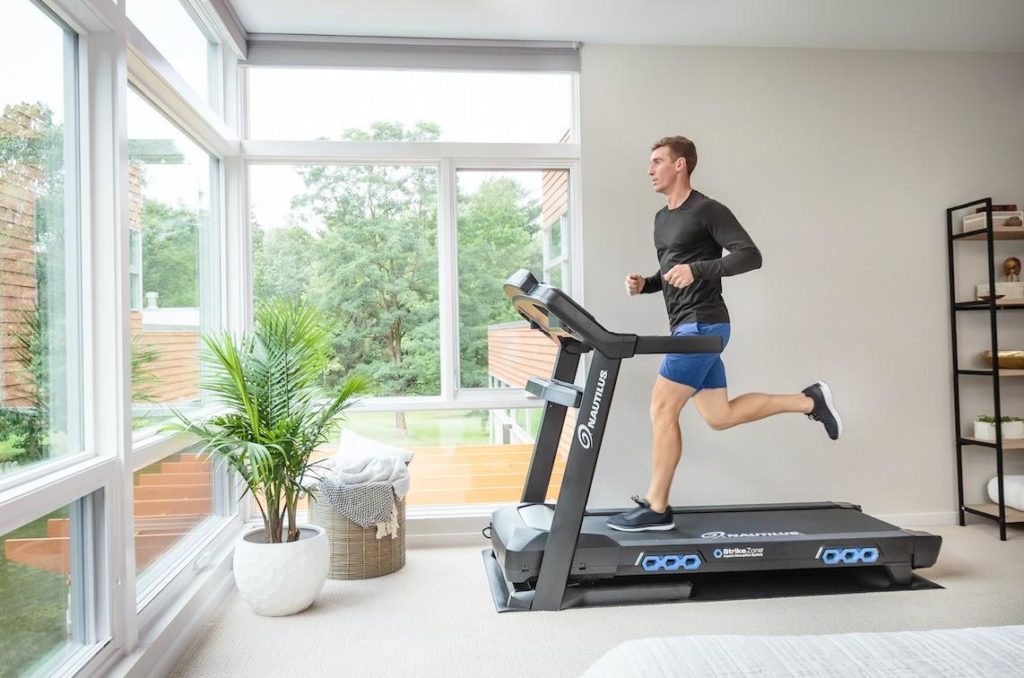
Founded in 1986, Nautilus began as a commercial gym equipment manufacturer before shifting to the at-home market in 2011. Owners of brands Bowflex and Schwinn, the company has hardware foundations in strength training and stationary cycling. Paired with its digital fitness platform JRNY, Nautilus entered connected fitness through the VeloCore bike and Treadmill 22, both under the Bowflex banner.
Peloton
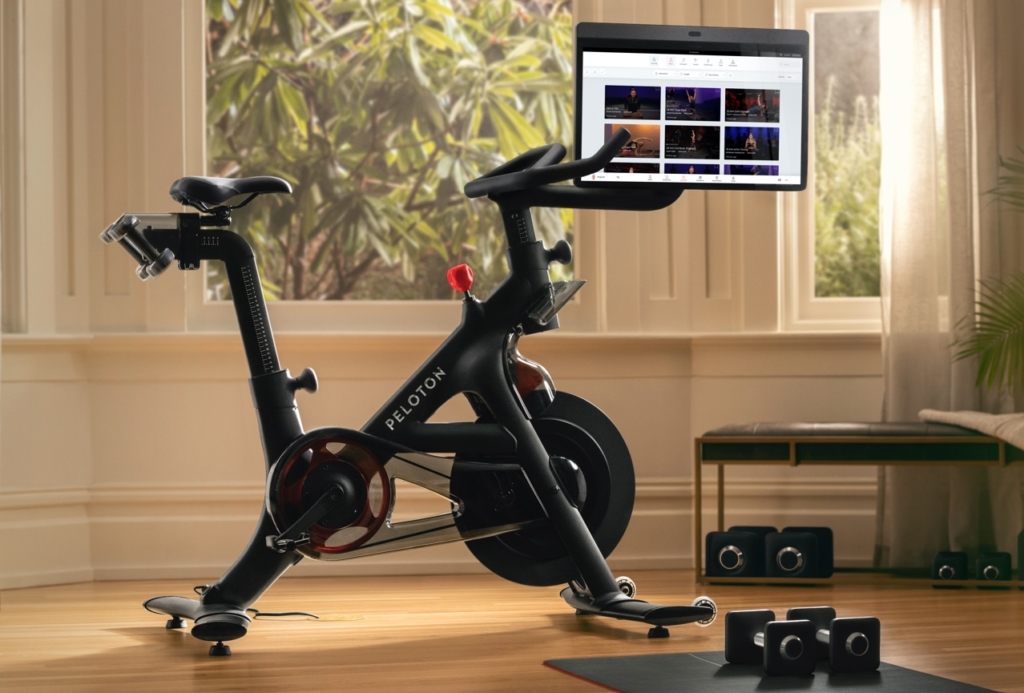
True to its name, Peloton is the clear leader in connected fitness. Bundling a highly developed in-house content studio with smart stationary bikes, treadmills, and emerging motion tech, the brand has built a brand affinity with loyal customers that has weathered many ups and downs of the COVID-19 pandemic. Addressing its shortfalls, Peloton has made acquisitions to bolster its position, like with manufacturers Tonic and Precor and wearables developer Atlas, among others. After an internal restructuring, it’s pursuing dynamic pricing and a rowing machine.
More from Fitt Insider: Rent-a-Bike: Peloton Tests New Pricing Strategy
Technogym
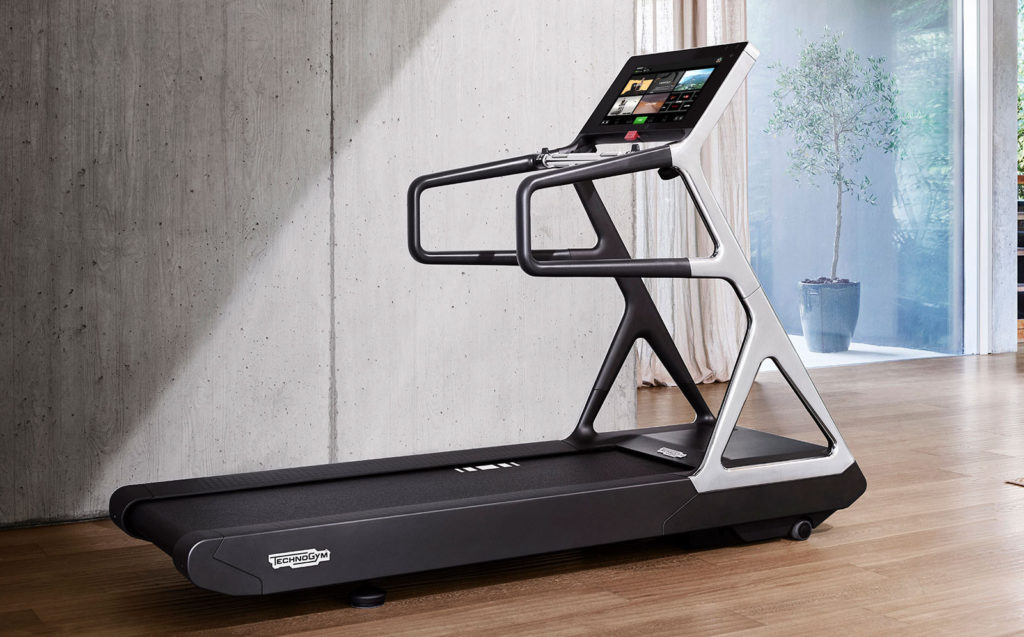
Italy-based Technogym is a global supplier of high-end equipment for both commercial gyms and at home markets. Well-known for partnering with distinguished product designers, Technogym pairs aesthetics with performance. The company’s connected portfolio includes bikes, treadmills, and ellipticals.
More from Fitt Insider: Issue No. 176: Android of Fitness
Bike
Blue Goji
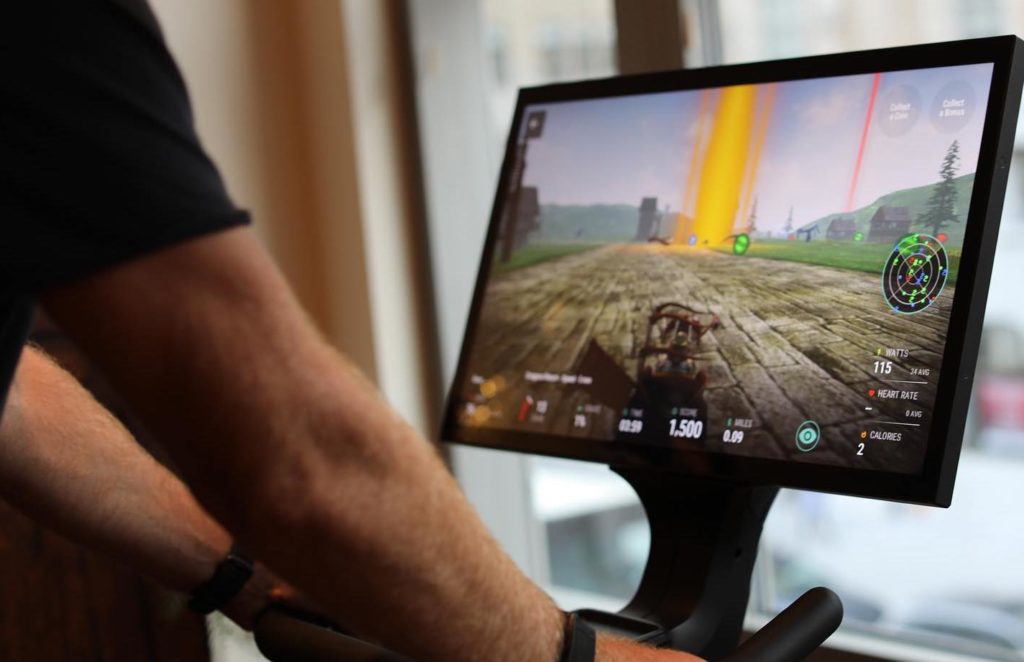
Blue Goji gamifies fitness, creating experiences in 2D and VR. Makers of a connected VR treadmill, the company acquired stationary bike brands Expresso and CyberCycle, as well as gamified bike Capti in 2022, rebranding the latter to Embodi. Combining its VR prowess with the Embodi bike’s hardware/software bundle — users can explore digital worlds built on Epic Games’ Unreal Engine, emulating studio and road bike rides.
More from Fitt Insider: Fitt Insider Podcast: Jeff Veldhuizen, CEO of Capti
Cultbike by Cult.fit
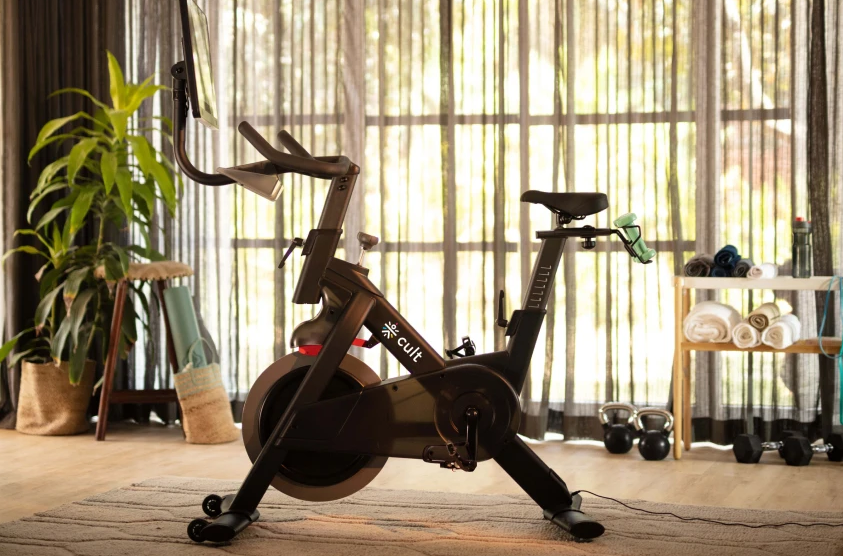
India’s Cult.fit entered connected fitness through a 2021 acquisition of TREAD, a smart fitness bike. Rebranding the product Cultbike, the hardware-subscription combo offers access to classes and content from the Cult.fit app. Cultbike is only available in India. The company has also acquired additional at-home equipment makers, expanding its hybrid approach to exercise.
More from Fitt Insider: Cult.fit’s Continued Acquisition Spree
Beachbody (MYXfitness)
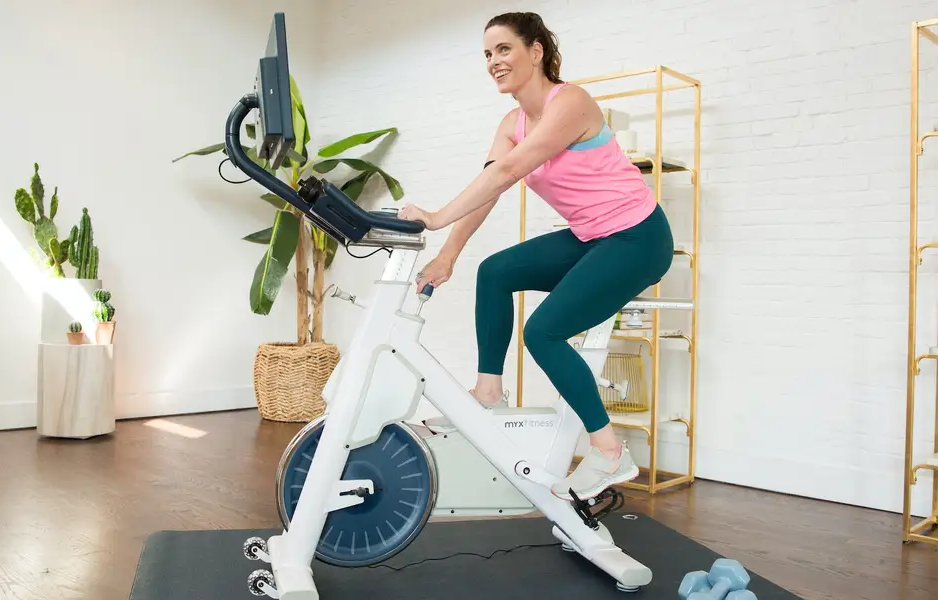
Originally known as MYXfitness, the maker of lesser-priced connected fitness bike MYX was acquired by Beachbody via a 2021 SPAC merger. After a disappointing IPO and slipping sales on its bike, Beachbody has pursued a “One Brand” strategy, renaming its bike The Beachbody Bike and pairing with its digital content app BODi.
More from Fitt Insider: Fitt Insider Podcast: Carl Daikeler, CEO of Beachbody
SoulCycle (Equinox)
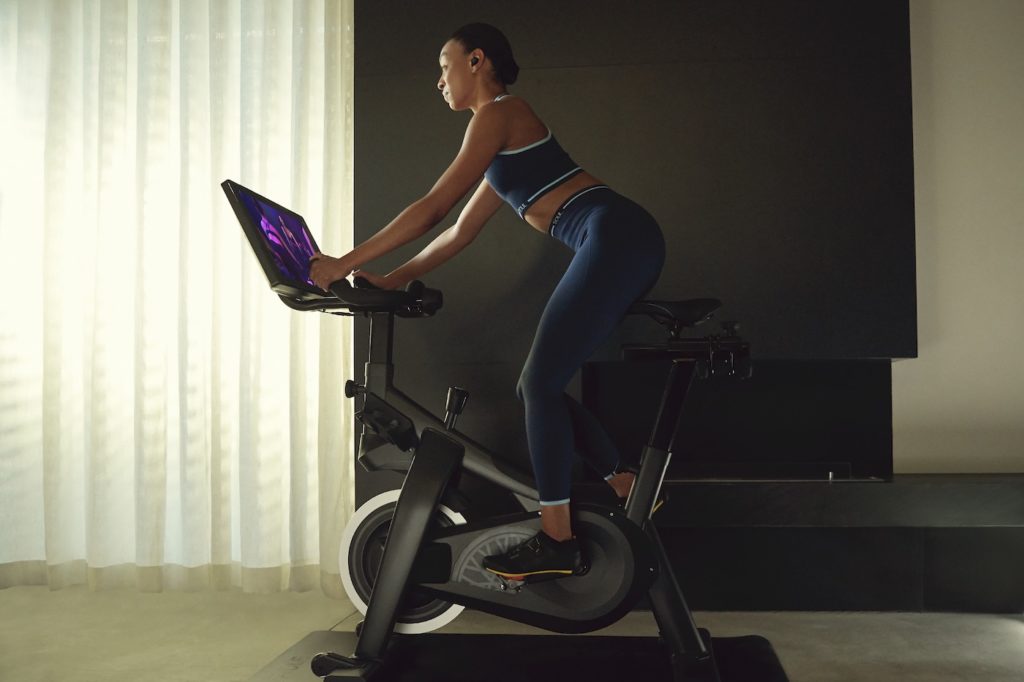
The iconic brand, acquired by Equinox in 2011, boosted boutique studio fitness into overdrive in the mid-2010. After a series of missteps, SoulCycle’s bike hit the market in spring 2020. Paired with the Equinox+ platform, riders have access to streaming classes as well as off-the-bike workouts like PURE Yoga, Rumble boxing, and Tom Brady’s TB12.
More from Fitt Insider: Fitt Insider Podcast: Evelyn Webster, CEO of SoulCycle
Volava
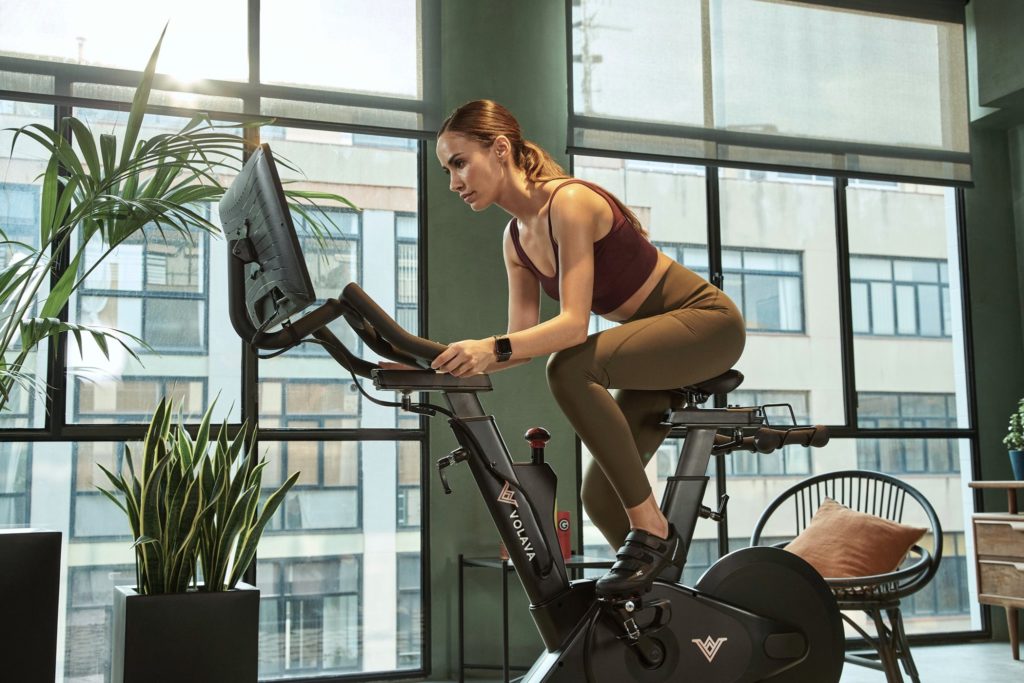
Spain’s connected fitness leader Volava is executing a Peloton-like strategy. Beginning with its Smart Bike, the equipment maker has developed a connected treadmill, heavy bag, and accessories like its own heart rate monitor that sync with its digital content platform.
More from Fitt Insider: The Peloton of ‘X’ Trend Goes Global
Wahoo Fitness
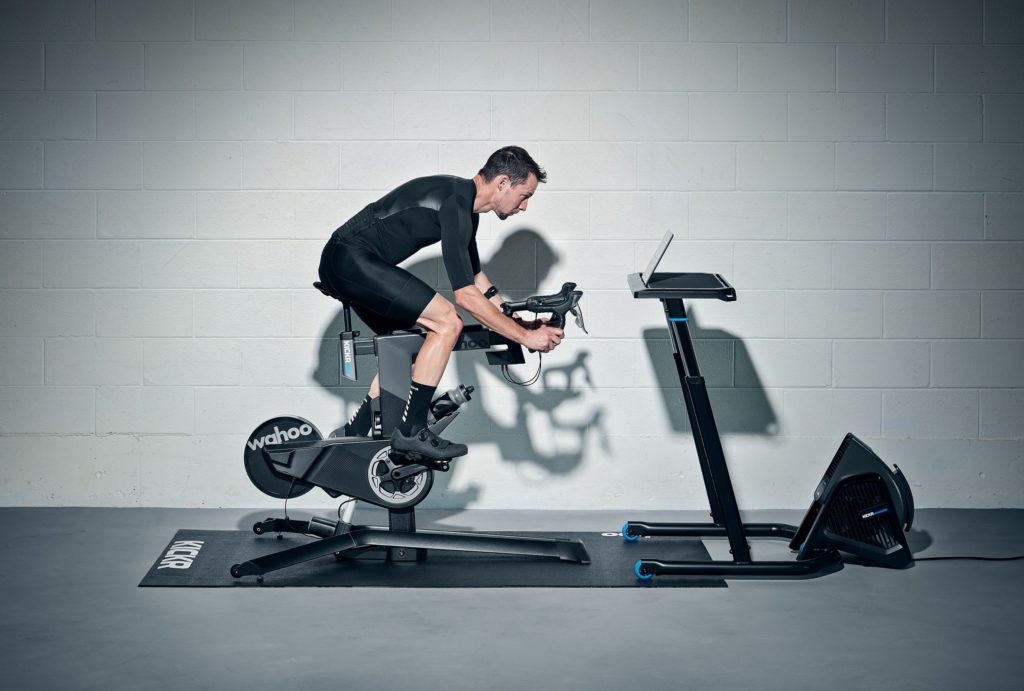
A player in endurance tech and connected fitness, Wahoo Fitness produces a range of cycling-centric hardware and software, including smart cycling trainers, GPS-enabled gear, a stationary bike, and synced training app.
More from Fitt Insider: Fitt Insider Podcast: Chip Hawkins, founder & chairman of Wahoo Fitness
Wattbike
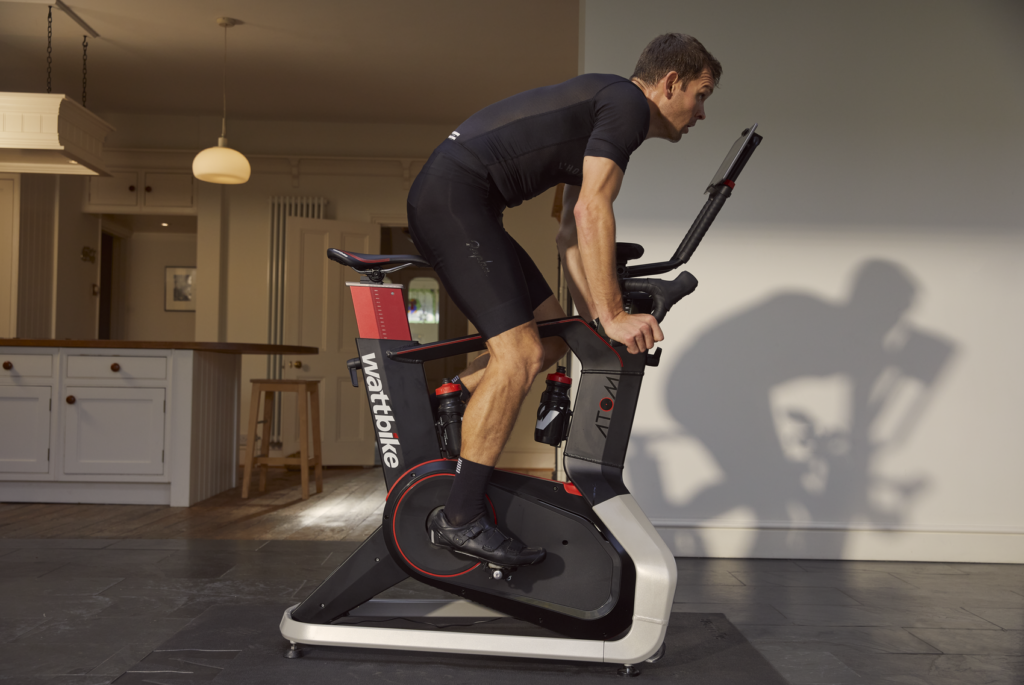
Developed in partnership with British Cycling, Wattbike’s signature ride has secured strategic partnerships with athletes England Football, New Zealand All Blacks, Porsche, and Red Bull, as well as Virgin Active health clubs. Building its brand on precision data, Wattbike’s target audience is the quantified athlete.
More from Fitt Insider: Endurance Tech: Indoor Cycling Beyond Peloton
Strength
Arena
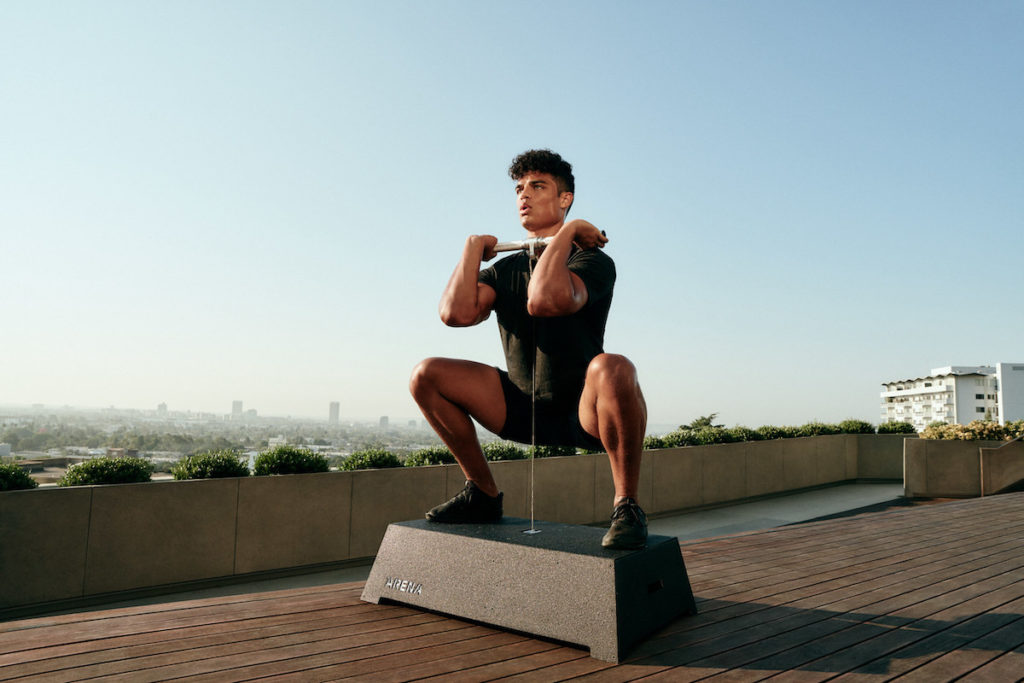
Arena is the creator of a screenless smart plyometric box outfitted with a high-torque motor capable of creating 200lbs of resistance through a cable pulley. Portable and powered by a rechargeable lithium-ion battery, the system pairs with any smartphone or tablet for instruction and classes.
More from Fitt Insider: Fitt Insider Podcast: Krisna Bhargava, CEO of Arena*
JAXJOX
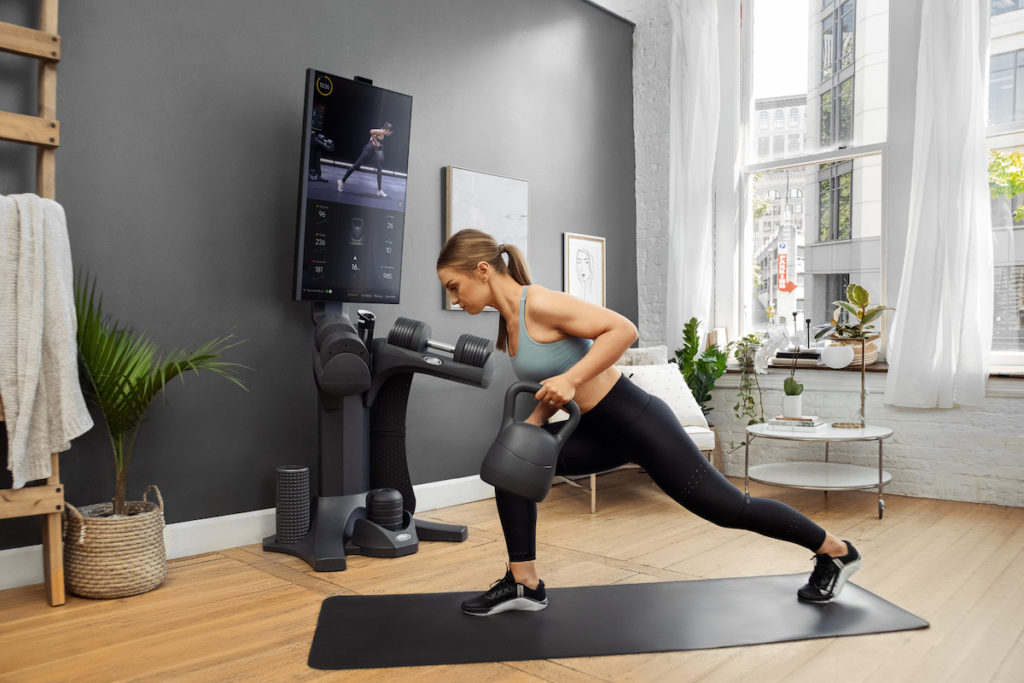
Debuting with a smart, rep-tracking kettlebell, JAXJOX has evolved into a smart equipment ecosystem with kettlebells, dumbbells, and foam roller syncing with a base-mounted touchscreen monitor. A monthly digital content subscription unlocks access to live and on-demand classes, as well as strength progression analysis.
OxeFit
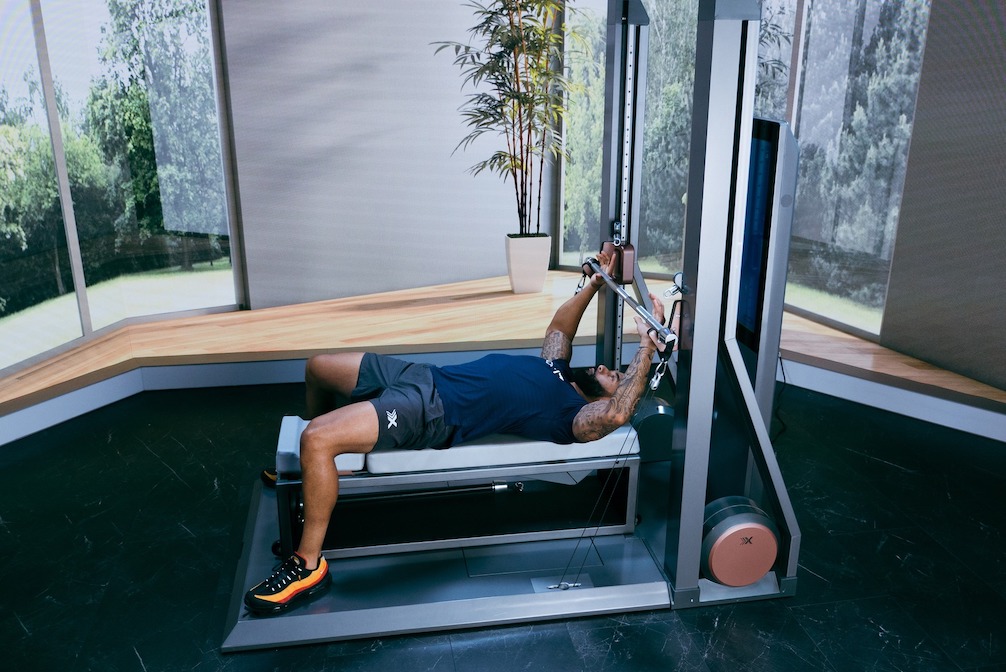
Launched in late 2021, OxeFit’s XS1 home gym apparatus is on the highest end of the connected strength market. An at-home version of the company’s $36K XP1 commercial product, the $6K XS1 (not including content subscription) offers 250lbs of resistance through an AI-enabled barbell and bench, as well as adaptations for rowing and Nordic skiing cardio workouts.
Speede Fitness
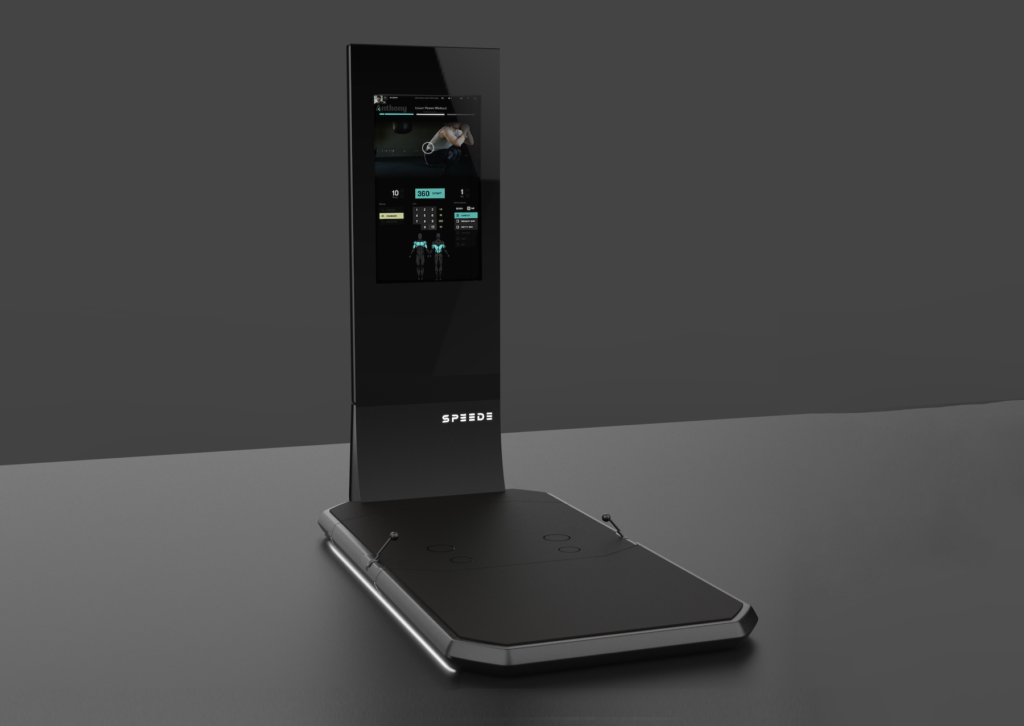
Designed by aerospace engineers, Speede’s smart strength apparatus combines isotonic, isokinetic and eccentric training elements and can deliver 2,000lbs of resistance. Staking its business efficiency and injury prevention, the company targets time-crunched high-performers and athletes.
More from Fitt Insider: Startup Q&A: Speede Fitness Co-founder Dan Mooney
Tempo
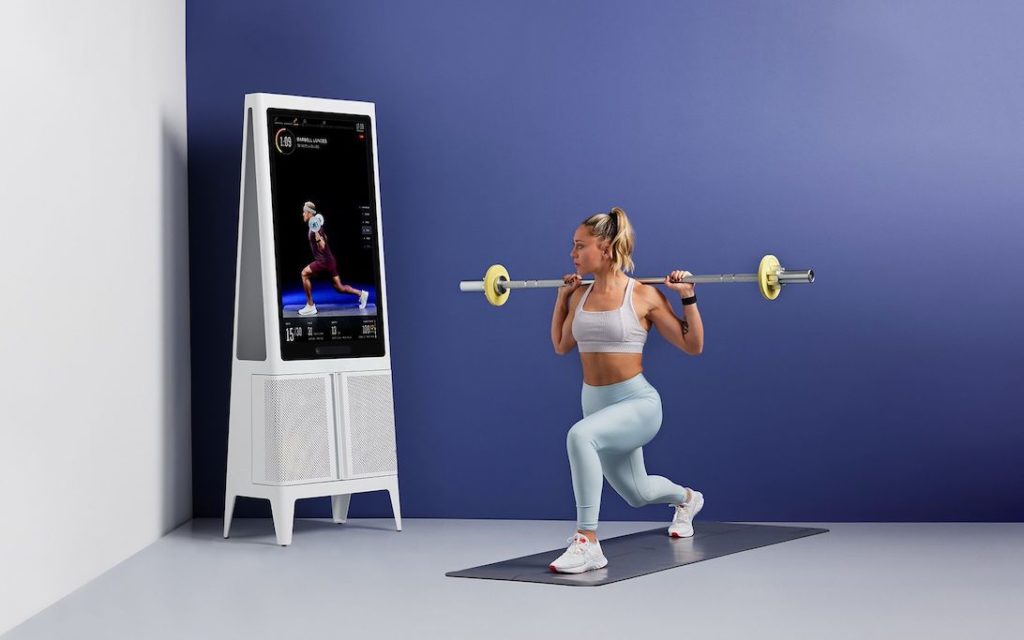
A player in the connected strength training category, Tempo’s design-forward fitness locker features a 42-inch screen equipped with 3D computer vision to deliver real-time form cues. Its signature product offers three equipment tiers, while the late-2021 launch of its equipment-free product, Tempo Move, requires only a television and smartphone.
More from Fitt Insider: Fitt Insider Podcast: Josh Augustin, CTO of Tempo
Tonal
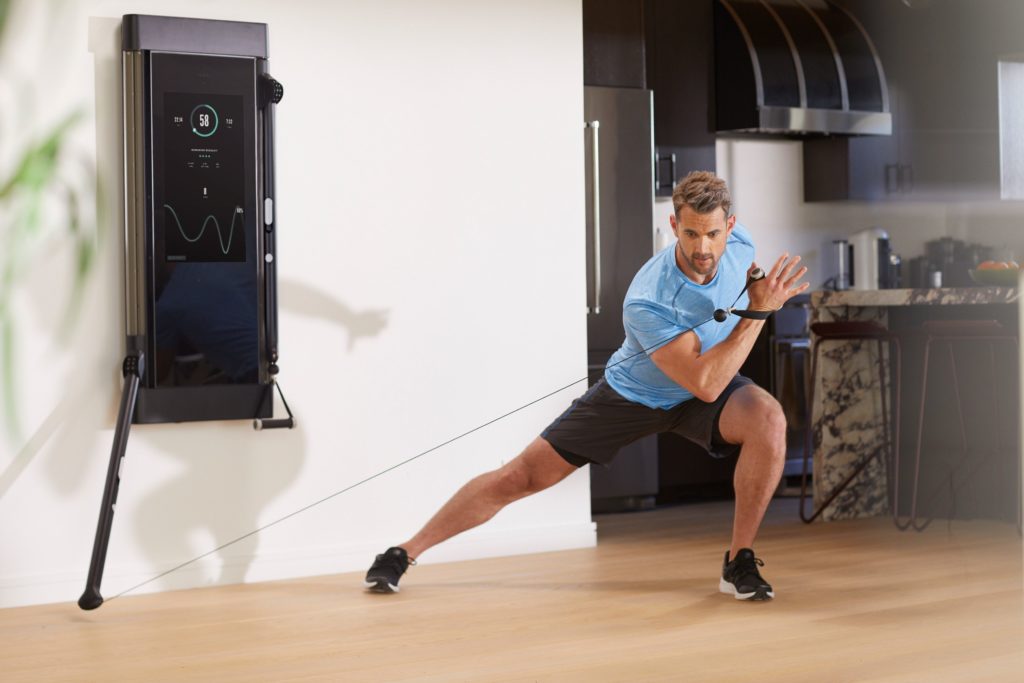
A leader in connected strength, Tonal’s electromagnetic weight system commanded 90% market share as of mid-2021, according to the company. Pioneering both digital weights and a playbook that leverages athlete-investors, the billion-dollar unicorn has endorsements from LeBron James, Steph Curry, Serena Williams, Drew Brees, Mike Tyson, Michelle Wie—the list goes on. With popular appeal and deep pockets, Tonal is now increasing access through the opening of showrooms nationwide while iterating its product to include livestreamed classes.
More from Fitt Insider: Fitt Insider Podcast: Aly Orady, CEO of Tonal
Kabata
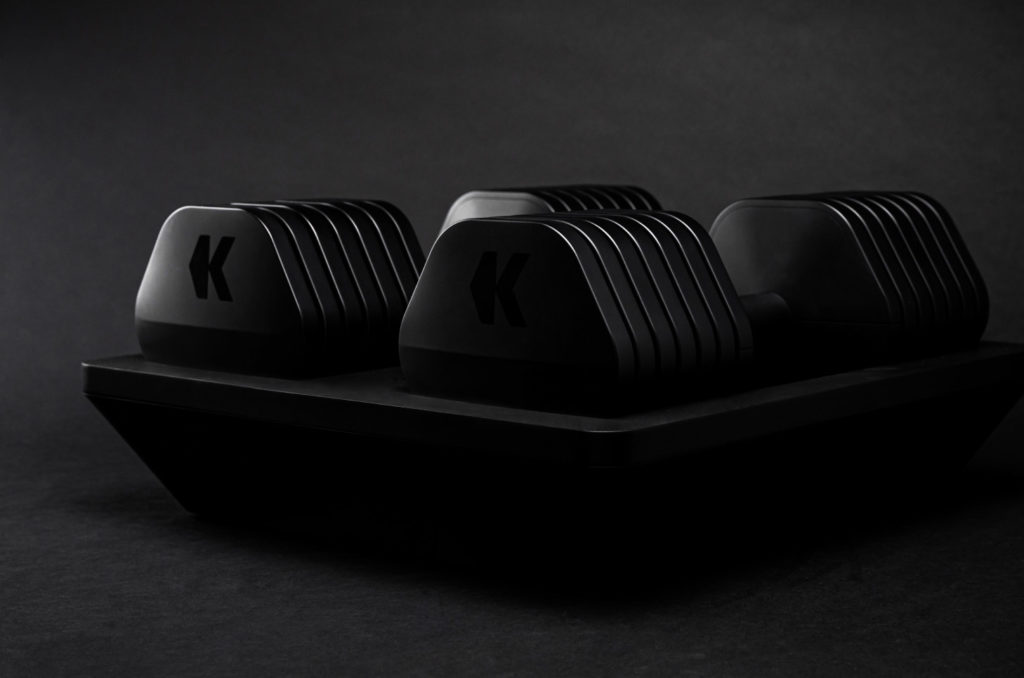
Kabata creates adjustable smart dumbbells that track real-time metrics on reps, time, and form. Its embedded, AI-enabled software delivers form corrections and programming cues through the dumbbells in form of haptic feedback, while its accompanying app creates and adapts personalized training plans based on your workout data.
More from Fitt Insider: Kabata Lands $2M for Smart Dumbbells
Vitruvian
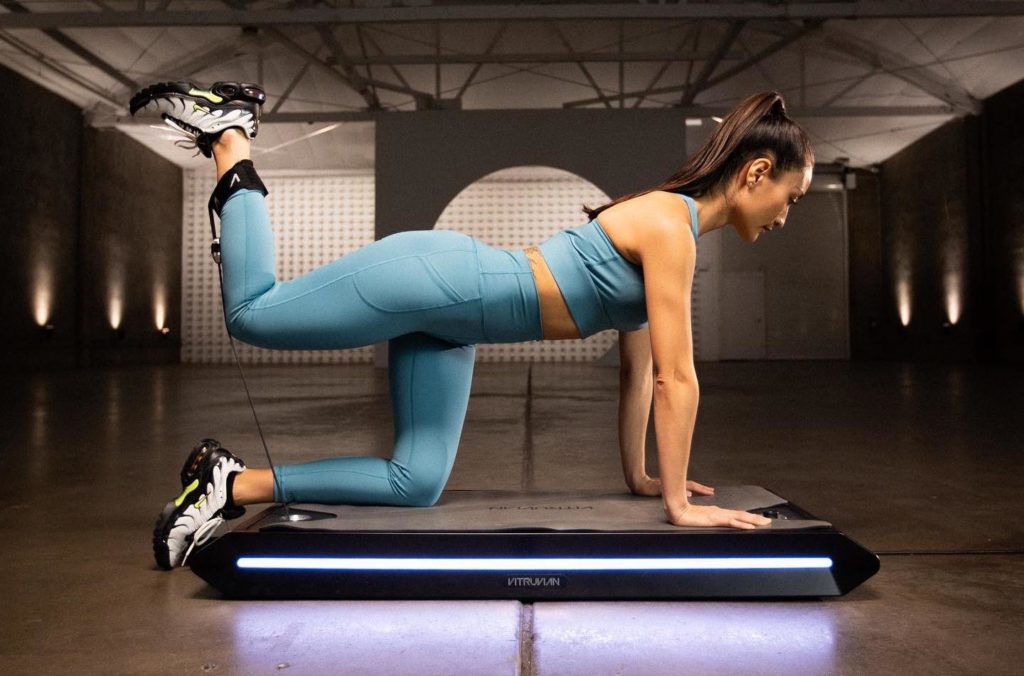
Australian startup Vitruvian makes a screenless plyometric bench for strength training, offering over 400lbs of resistance through cables on a motorized platform. Through a monthly content subscription, users gain access to an exercise library, classes, and personalized progress tracking.
Boxing
Boxx
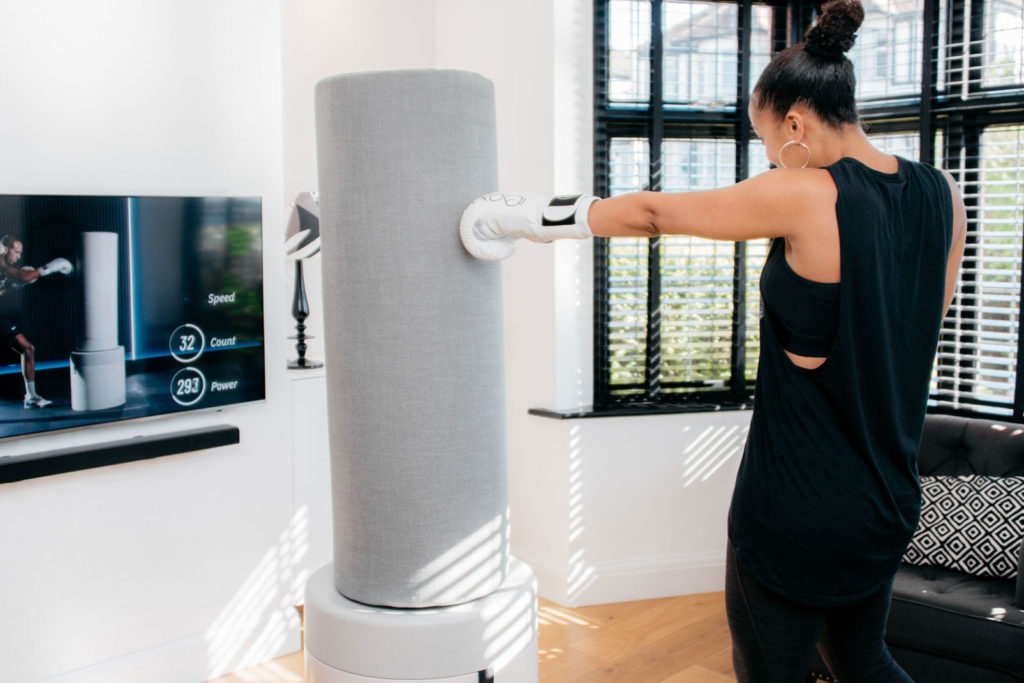
UK-based omnichannel operator Boxx pivoted before the pandemic, making its cardio boxing concept available in studio and at home. In late 2021, the company began taking preorders for its connected punching bag and sensor-affixed gloves, capable of tracking count, speed, power, and direction of punches.
FightCamp
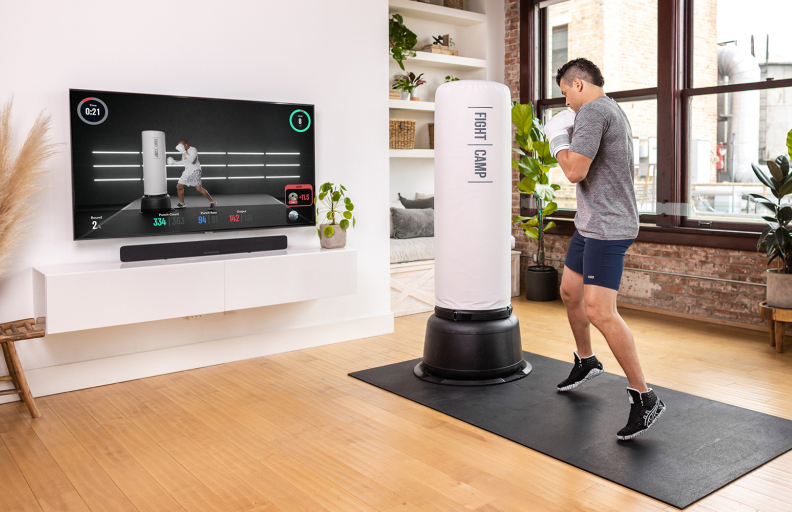
FightCamp has the hardware, funding, and celebrity endorsements to make it the leader of the connected boxing category. The brand offers a heavy bag with boxing gloves and wrist-worn punch trackers that live-sync with its app. On top of initial equipment purchases, FightCamp employs a monthly subscription model to access its on-demand content.
More from Fitt Insider: Fitt Insider Podcast: Khalil Zahar, Co-founder and CEO of FightCamp
Liteboxer
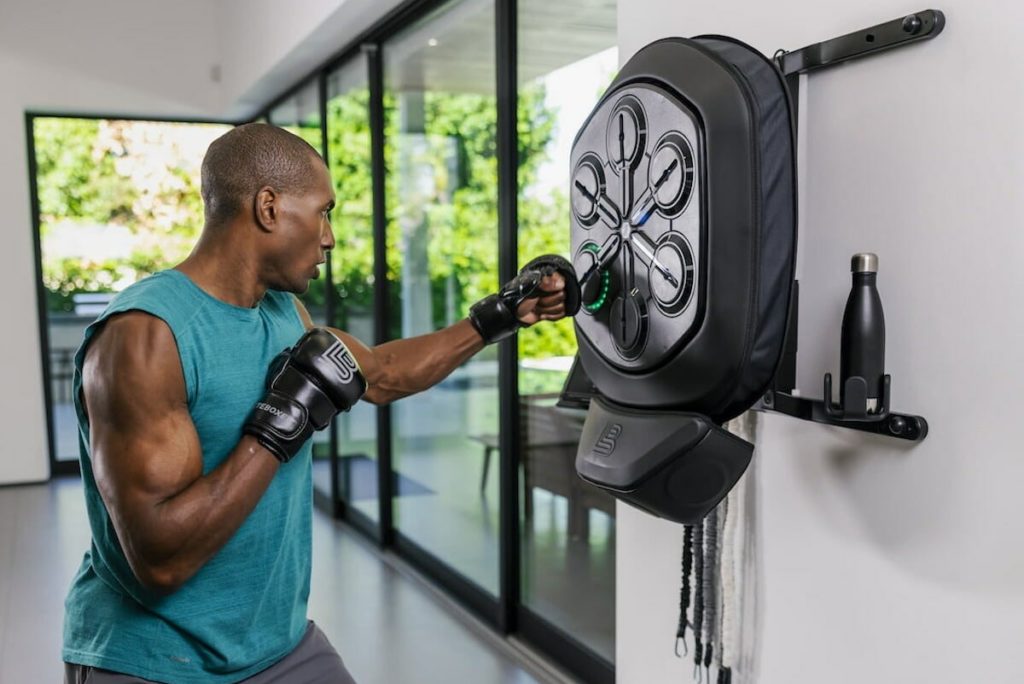
Liteboxer offers music-driven boxing workouts. The platform utilizes wall- or stand-mounted shield where users are directed to punch force-detecting LED lights that sync to the rhythm of over 100 songs. Users can access classes and real-time stats on the Liteboxer app after paying a monthly subscription. In 2022, Liteboxer adapted its workout to VR, available via subscription on Meta Quest.
More from Fitt Insider: Fitt Insider Podcast: Jeff Morin, CEO of Liteboxer
Mirror/Screen
Carbon Trainer
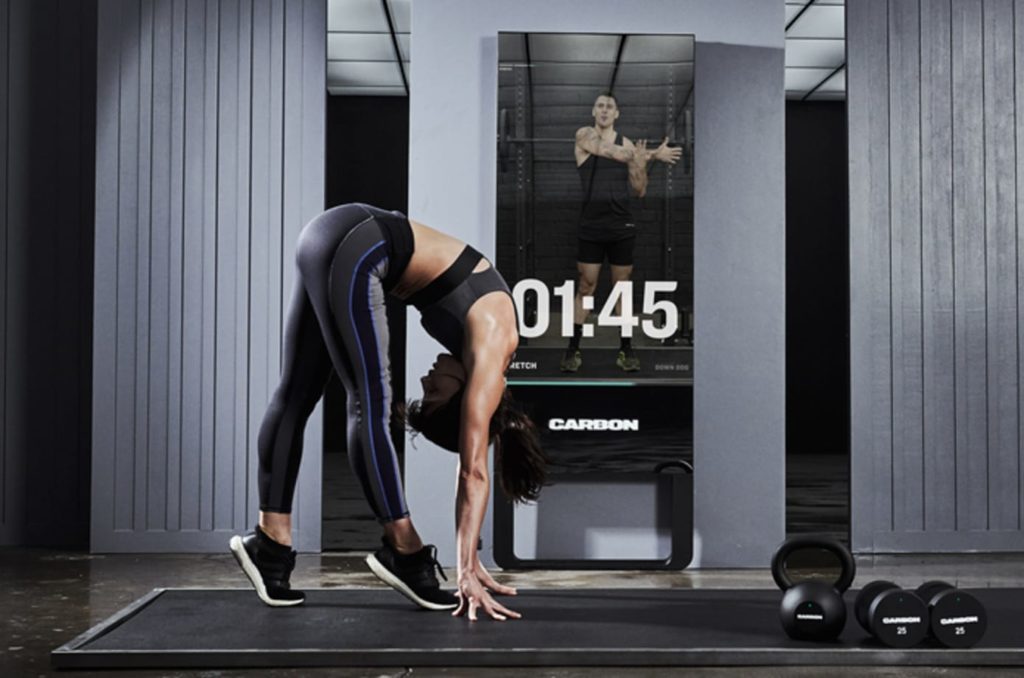
Carbon Trainer produces a fitness mirror that uses computer vision to track form and count reps. Sold separately, the company sells sensor-affixed dumbbells and kettlebells, as well as standalone sensors that can be affixed any free weights. Targeted toward weightlifters, users paying the $39/mo. subscription can build programs and get real-time metrics like time under tension and total volume.
Fiture
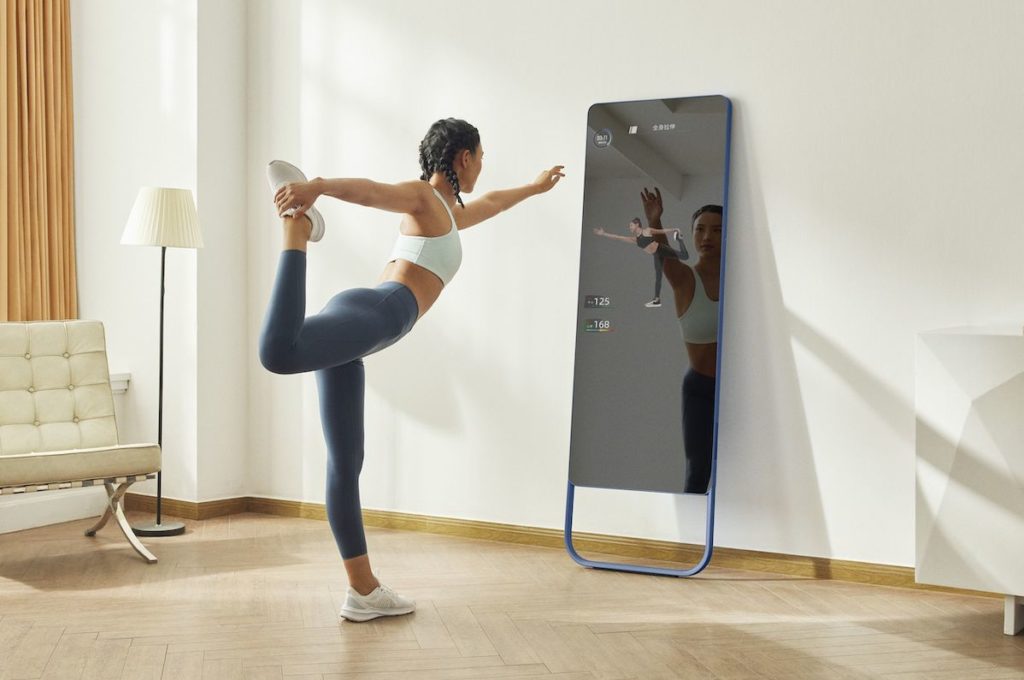
With significant funding and nearly 100% market share of the Chinese fitness mirror market, Fiture’s AI-powered screen has struck deals with countless Chinese malls, hotels and gym chains. Selling two versions of its product, Fiture offers live and on-demand classes for bodyweight exercise, yoga, tai chi, and more.
More from Fitt Insider: Around the World: Fitness Brands Go Global as Competition Heats Up
FORME
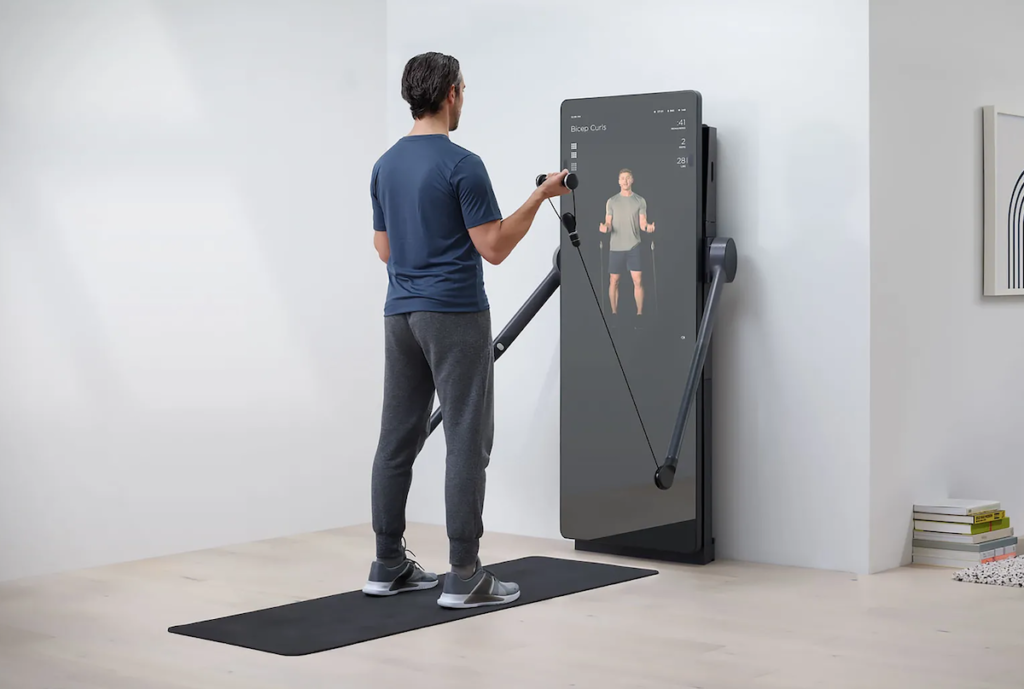
Launched during the COVID-19 pandemic, FORME’s wall-mounted workout mirror features on-demand classes for yoga, HIIT, and cardio. The company’s recent and forthcoming hardware developments, like a ballet barre attachment and resistance pulley system for strength training, broaden its audience, while its exclusive content partnership with Barry’s bolsters its subscription content.
More from Fitt Insider: Fitt Insider Podcast: Trent Ward, CEO of Forme
MIRROR
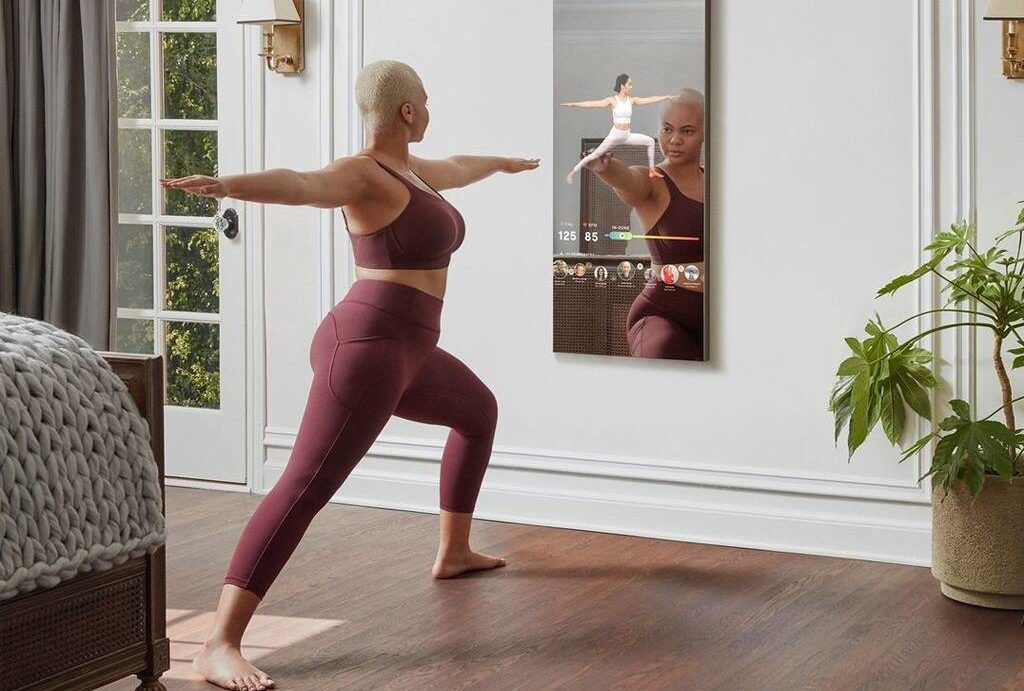
Creator of the first interactive, wall-mounted fitness screen, MIRROR offers live and on-demand bodyweight fitness classes ranging from HIIT to yoga. Acquired by retailer lululemon in 2020, the company has invested in 1:1 personal training capabilities and additional production studios while debuting its line of connected dumbbells and ankle weights.
More from Fitt Insider: Fitt Insider Podcast: Brynn Putnam, founder of MIRROR
STUDIO
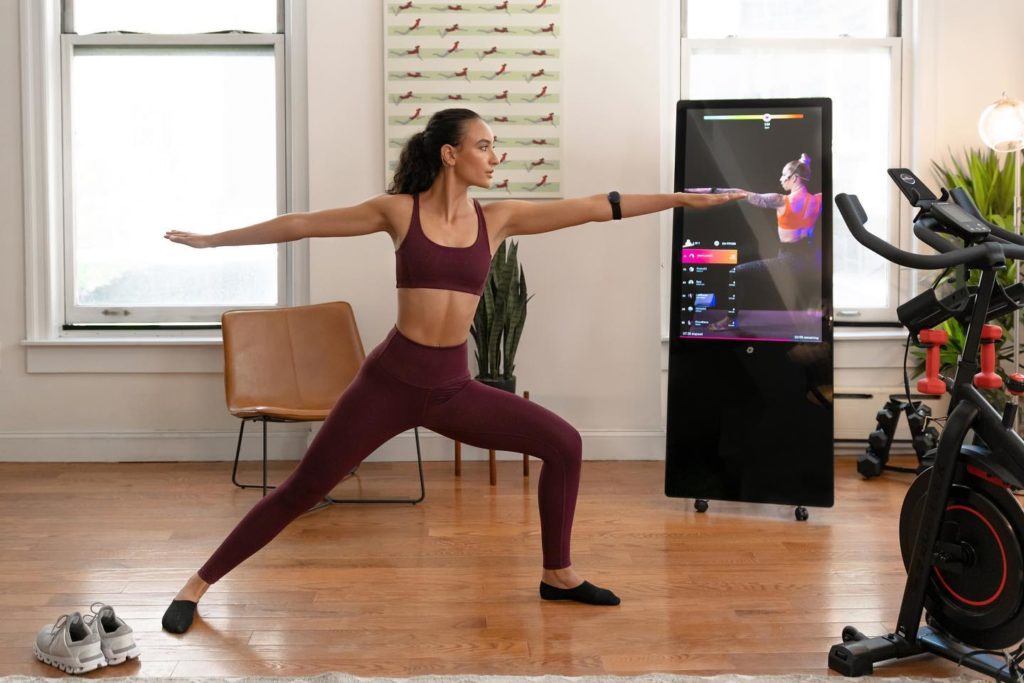
Billed as a “smart hub,” STUDIO’s free-standing fitness screen syncs with other connected equipment, from bikes and treadmills to heart rate monitors. With a subscription membership, users can access on-demand classes and a real-time community leaderboard.
More from Fitt Insider: Fitt Insider Podcast: Jason Baptiste, CEO of STUDIO
VAHA
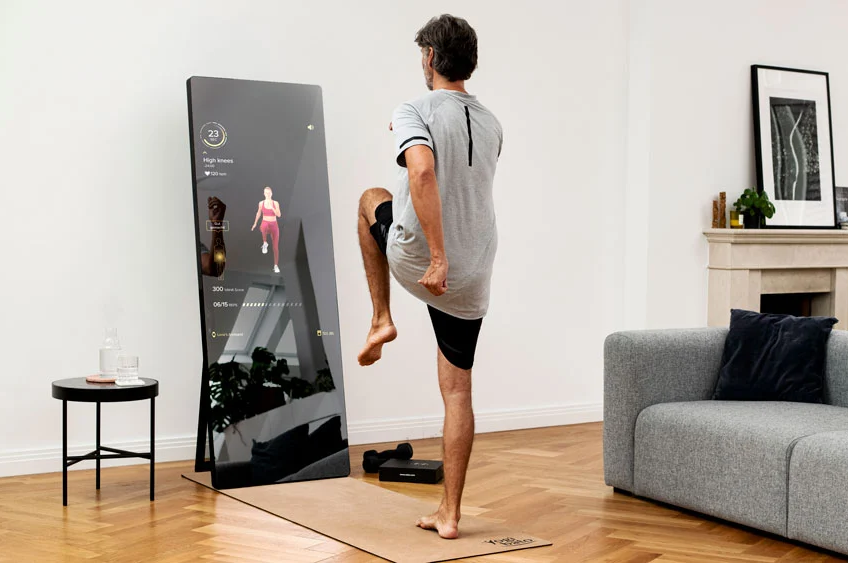
Launched in March 2020, Germany-based VAHA produces a high-end fitness mirror for bodyweight exercise, yoga, and more. A content subscription secures on-demand and live classes, 1:1 personal training, and personalized form-tracking workouts. VAHA is only available in Germany, Austria, and the UK.
Rowing
Aviron
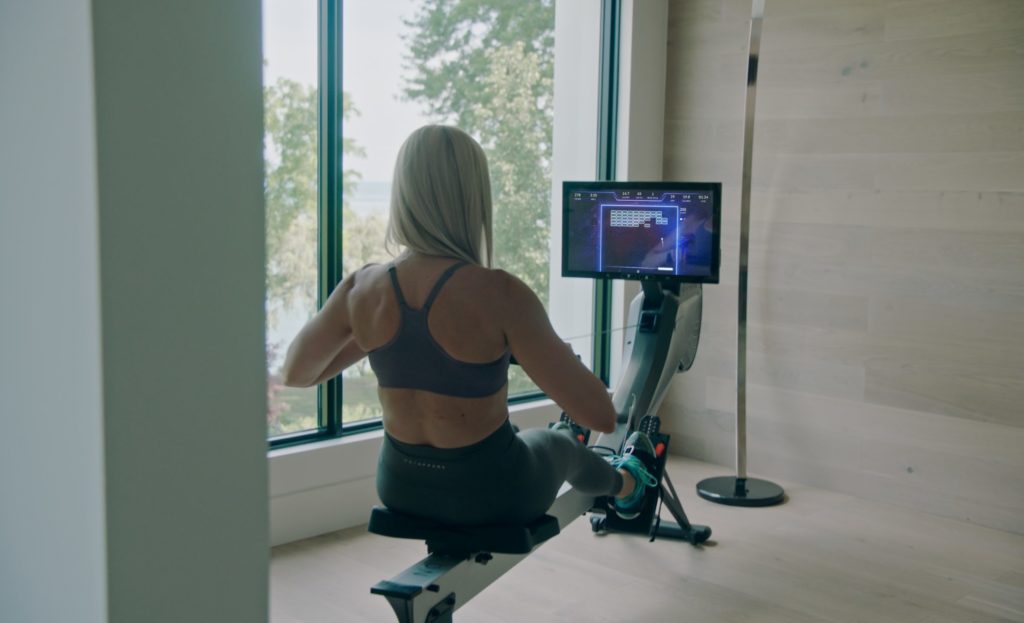
Aviron offers a gaming-first connected rowing machine that offers peer-to-peer competition, arcade-style animated games, and group workouts. The hardware is designed with both air and magnetic resistance, allowing users to switch between cardio and strength training disciplines.
More from Fitt Insider: Gamified Rowing Startup Aviron Raises $4.5M
CITYROW
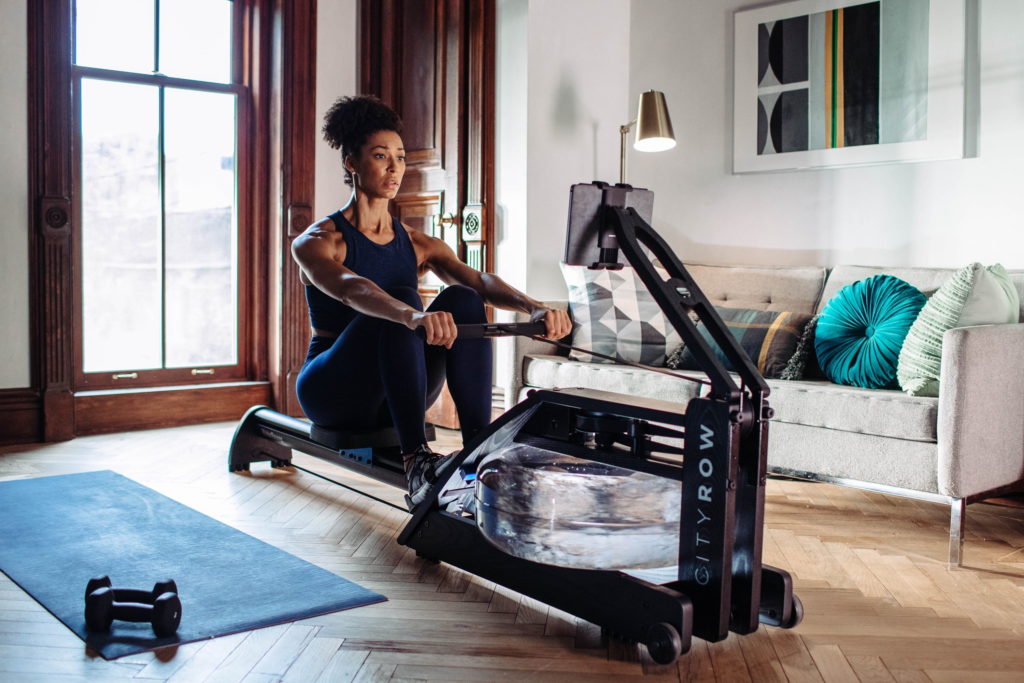
CITYROW built its rowing brand through boutique studios before entering connected fitness with an at-home rower and digital platform in 2018. With 12 brick-and-mortars open and a total of 65 franchises sold, CITYROW is pushing an omnichannel experience through its digital content subscription and in-person classes in seven states.
More from Fitt Insider: Fitt Insider Podcast: Helaine Knapp, CEO of CITYROW
Ergatta
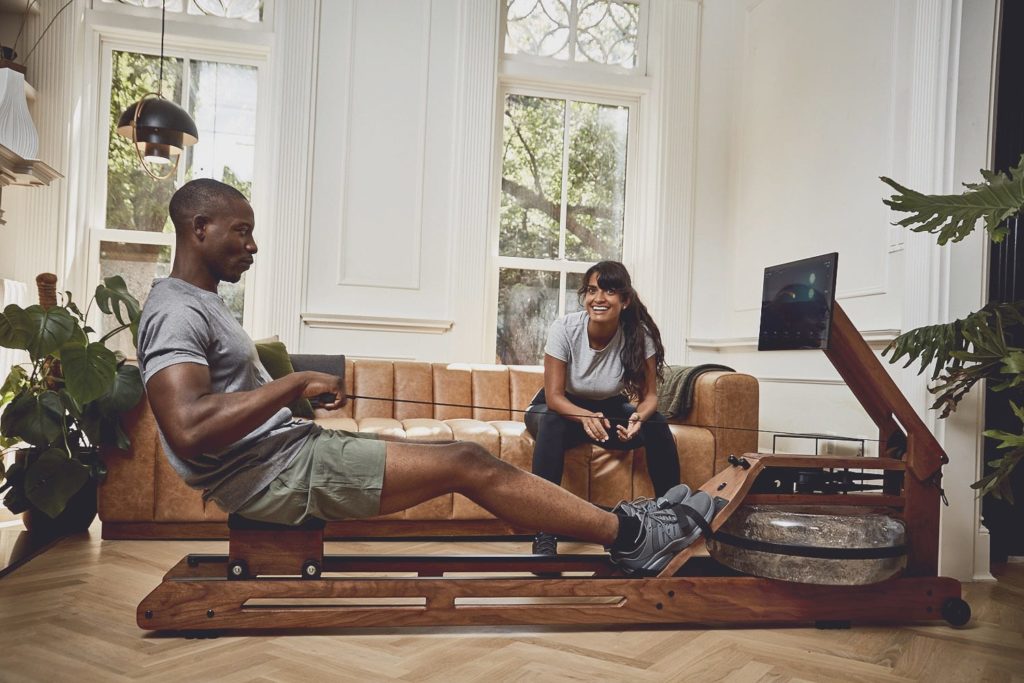
Ergatta offers a connected rowing machine bundled with a monthly digital content subscription. Less about the metrics, the platform emphasizes gamified content over instructor-led classes, enabling sequential programming and head-to-head competition.
More from Fitt Insider: Fitt Insider Podcast: Tom Aulet, CEO of Ergatta
Hydrow
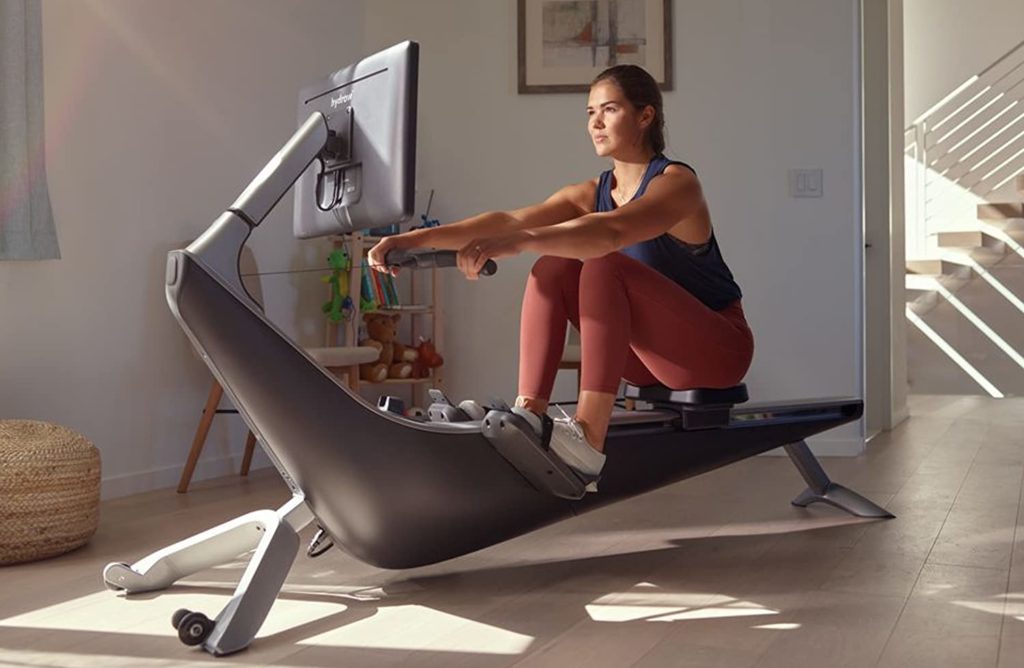
The frontrunner in the connected rowing category, Hydrow’s modern-design erg is designed to make exercisers feel like they’re rowing on the water with live and on-demand classes shot on waterways around the world, as well as unguided immersive experiences. Leveraging star power, comedian Kevin Hart was named creative director in 2020 and participates in monthly rowing events with users.
More from Fitt Insider: Fitt Insider Podcast: Bruce Smith, CEO of Hydrow
Pilates
Flexia

Flexia launched its connected Pilates reformer in early 2022, the first such device to market. Affixed with sensors, the accompanying AI software tracks form, offering real-time feedback while measuring flexibility, quality of movement, and control.
More from Fitt Insider: Connected Reformer Flexia Raises $4M as Pilates Takes Off
Frame
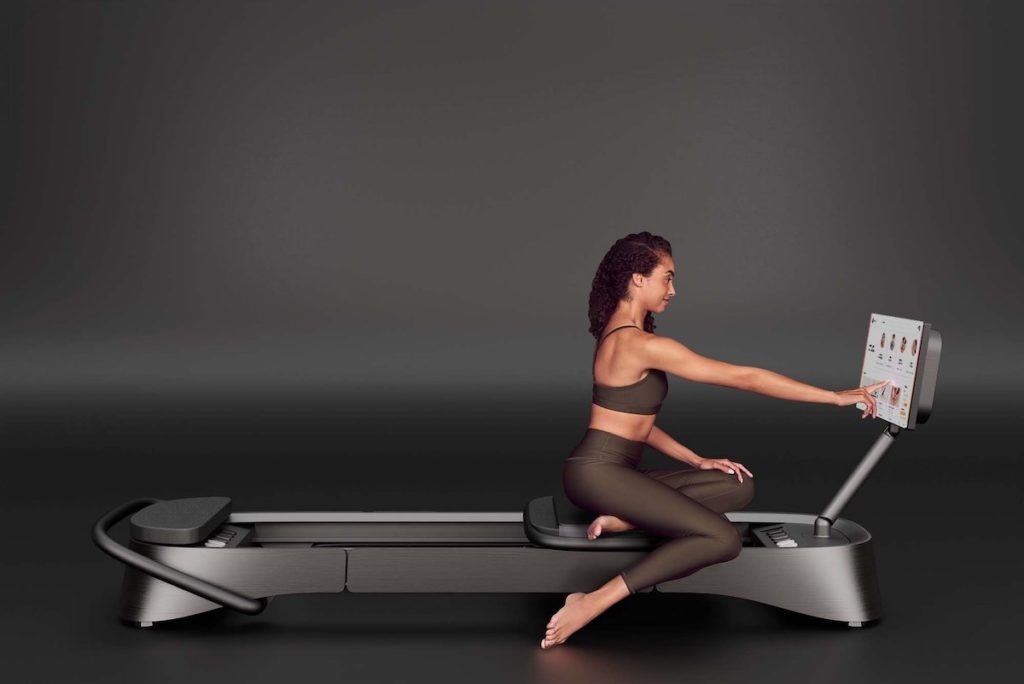
Born in the pre-pandemic studio setting, Frame’s connected reformer first began shipping in 2022. Its low profile and portable design solve the space issue of most professional-grade reformers, while its library of on-demand content provides classes for a range of modalities, from prehab to cross-training.
More from Fitt Insider: Fitt Insider Podcast: Melissa Bentivoglio, co-founder and CEO of Frame Fitness
ONYX Interactive
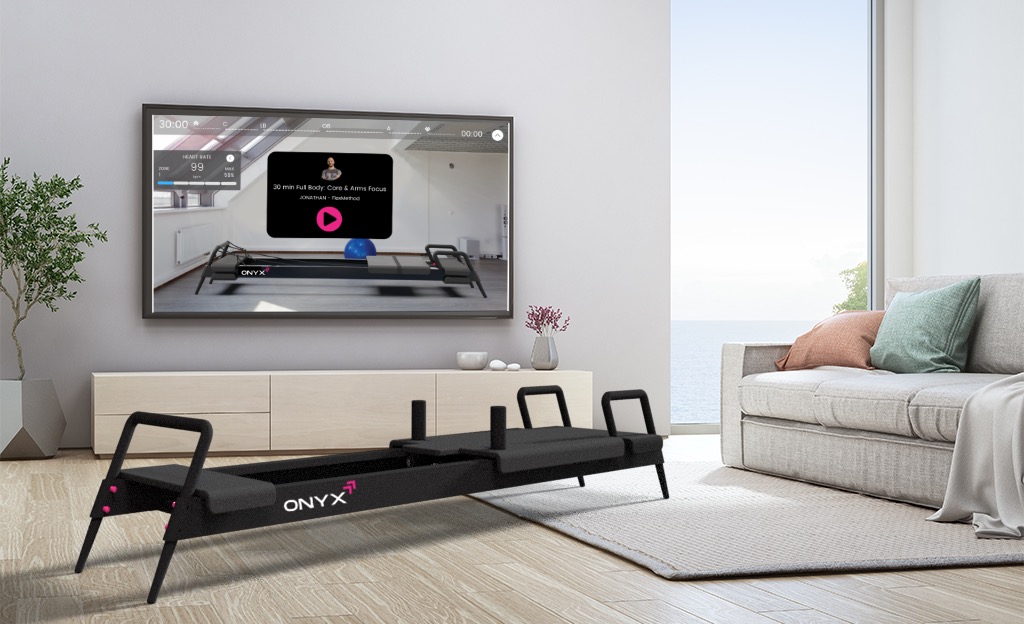
Creator of a screenless Pilates reformer-megaformer hybrid, ONYX’s system delivers 100lbs of functional resistance while delivering real-time feedback. Through its form correction technology, user are alerted to both their quality of form and range of motion while following a library of 600+ exercises.
Reform RX
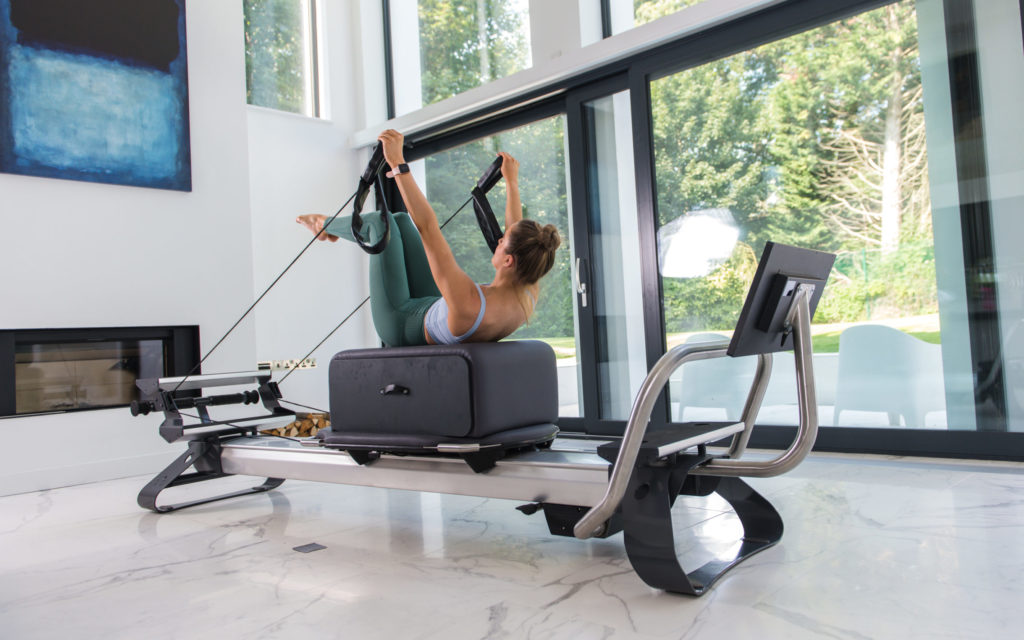
Founded in 2018 with roots in functional movement, Reform RX’s connected reformer appeals to the high-performer. Capable of tracking time under tension, calories, and integrations for WHOOP and Polar bands to measure duration in various heart rate zones. Immersed in tech, the Pilates company partnered with wearable apparel startup asensei in November 2021.
Climbing
CLMBR
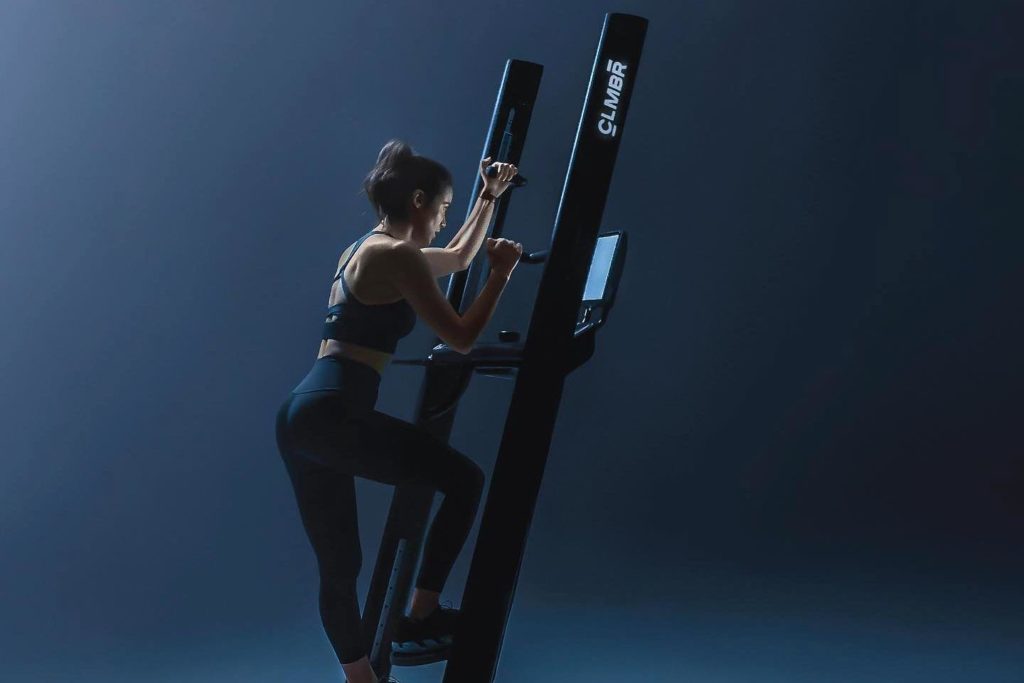
A first-of-its-kind home fitness machine, CLMBR’s connected vertical climbing apparatus capitalizes on a workout trend made popular by athletes and stars. Following playbooks of its predecessors, the company has leveraged endorsements from Jay-Z, LeBron James, and Novak Djokovic while expanding its physical presence and partnerships with Four Seasons hotels.
More from Fitt Insider: Fitt Insider Podcast: Avrum Elmakis, CEO of CLMBR
*Fitt Insider is an investor in Arena. We invest in health, fitness, and wellness companies. Learn more and get in touch here.
